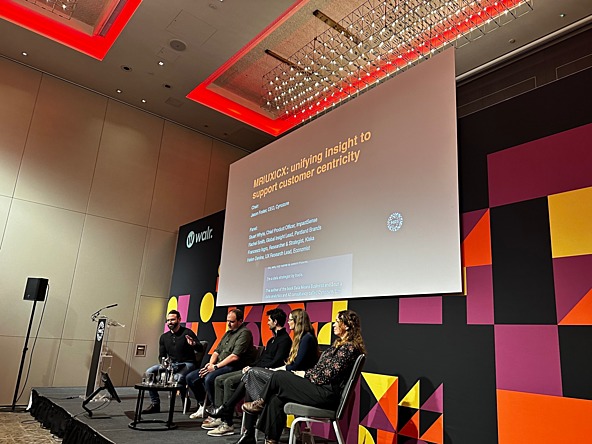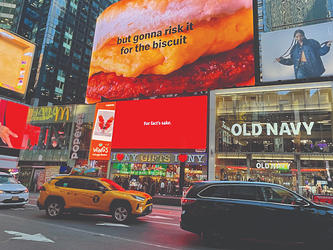The Economist UX research lead: ‘Customer centricity is a mindset’

Hosted by Jason Foster, chief executive of Cynozure, the session was entitled MR/UX/CX: unifying insight to support customer centricity.
The panel included Rachel Smith, global insight lead at Pentland Brands; Stuart Whyte, chief product officer, ImpactSense; and Helen Devine, UX research lead at The Economist.
As part of the discussion, they outlined their view of what customer centricity is and shared examples of it in their jobs. Here is some of what they had to share with delegates.
Devine: Don't make assumptions
“I think [customer centricity] is a mindset. It’s about promoting that mindset and not assuming that your customers or users are just like you – don’t assume you know everything already. It’s about accepting lots of challenge and making sure you’re always finding the evidence for it.
“One recent example is that The Economist recently launched a product called Podcasts+. The Economist’s wealth of podcasts had gone behind the paywall, so we needed to develop a brand new product in about nine or 10 months. It was really research led as there wasn’t a lot of understanding about it. We brought in loads of different sources – big, cross-market willingness-to-pay surveys; journey testing, prototype testing, including editorial prototypes, getting the editorial team to make podcasts for us and testing them with users.
“All of this was done in a collaborative way. It was about transparency, openness and lots of Slack channels where we were sharing screenshots and notes from users.
“It allowed The Economist to identify a new group called ‘Podcast people', who would use podcasts to find out pretty much everything they know.
“We also did a diary study on WhatsApp just before the launch all the way through until a month after launch. This enabled us to get really close to customers and users and spread it widely so that anyone in the business could hear directly what users were saying about it and we could troubleshoot quickly.”
Whyte: Understand and empathise
“What customer centricity means to me is that it’s not a term that’s very new – essentially it’s trying to understand and empathise with your end customer, [which is putting it] in a very simplistic way.
“The challenge within that, though, is making sure you’re doing that within the context of your business environment… making sure you’re not just thinking about its own interest but thinks about empathising with the end customer itself.”
Smith: Empathy first, development next
“Pentland is a company behind lots of sports brands: Speedo, Berghaus and Canterbury Rugby, among others. I quite like the short answer of consumer insight being empathy. But I think practically what that means is it’s about putting it first.
“So, rather than creating products of services and then getting to that whole development pipeline and then thinking, ‘Where are we going to sell this, who’s going to want it, why have we done it?’, [it is about] having all of those answers upfront before you get to your development process.”

We hope you enjoyed this article.
Research Live is published by MRS.
The Market Research Society (MRS) exists to promote and protect the research sector, showcasing how research delivers impact for businesses and government.
Members of MRS enjoy many benefits including tailoured policy guidance, discounts on training and conferences, and access to member-only content.
For example, there's an archive of winning case studies from over a decade of MRS Awards.
Find out more about the benefits of joining MRS here.














0 Comments